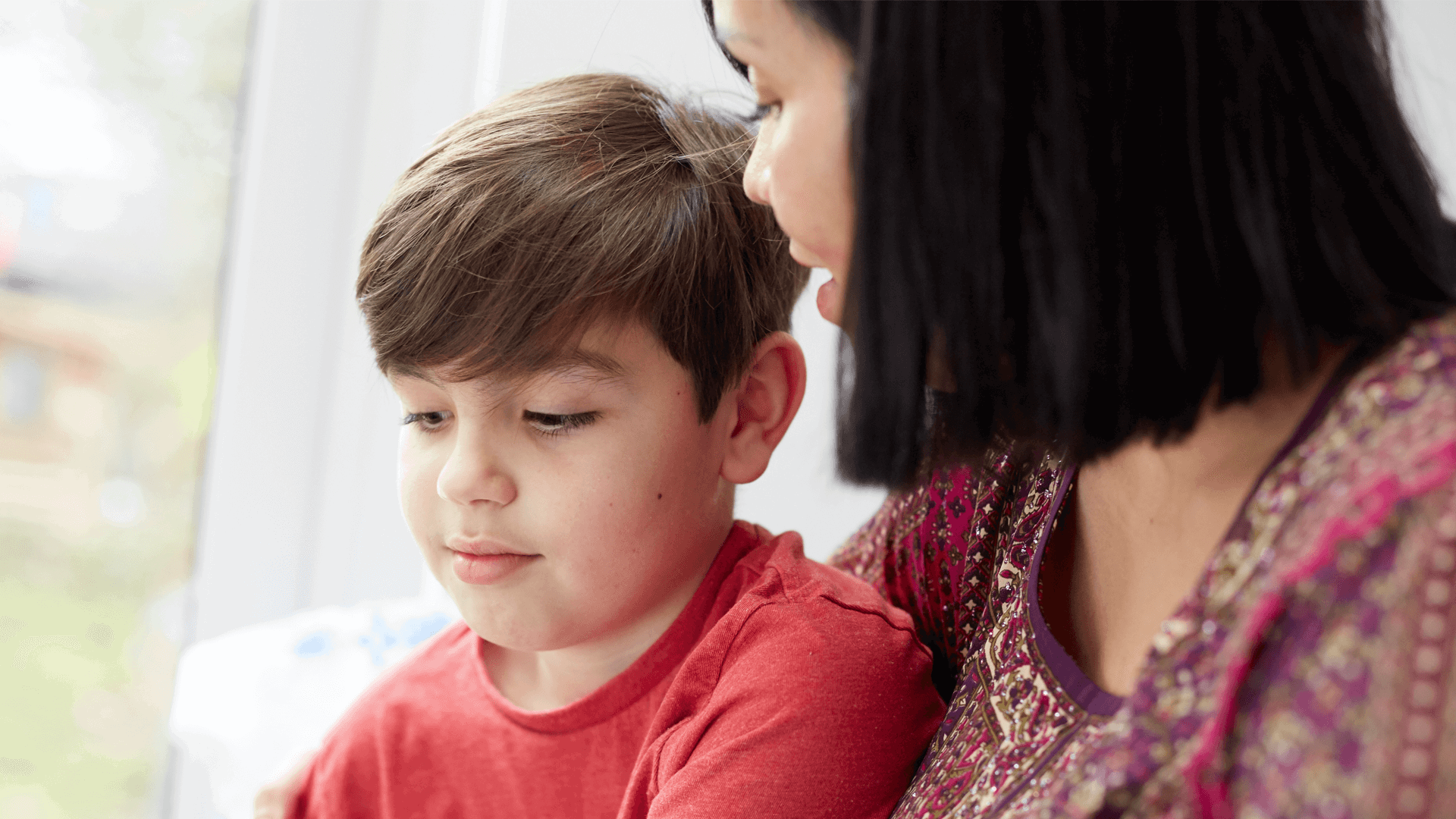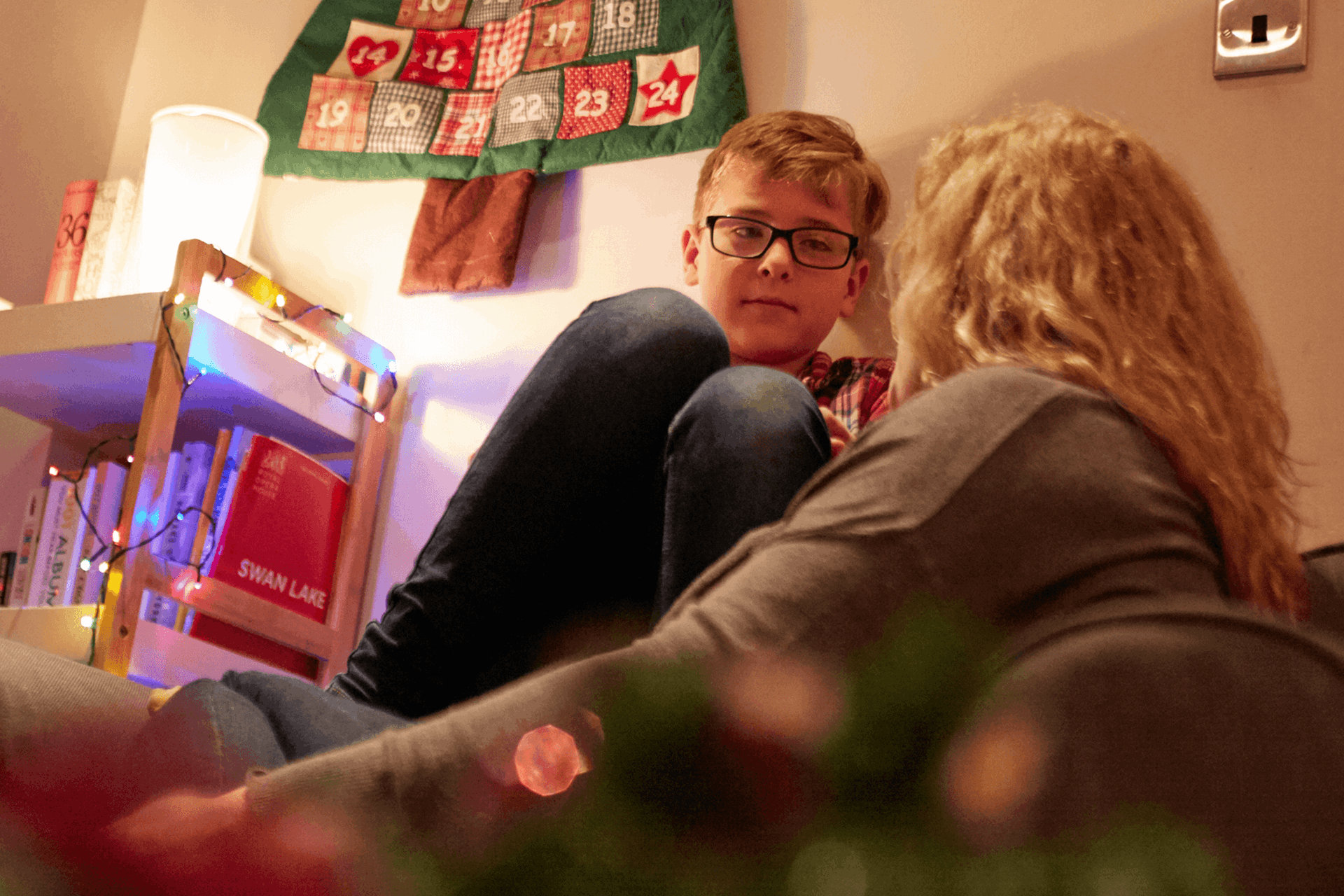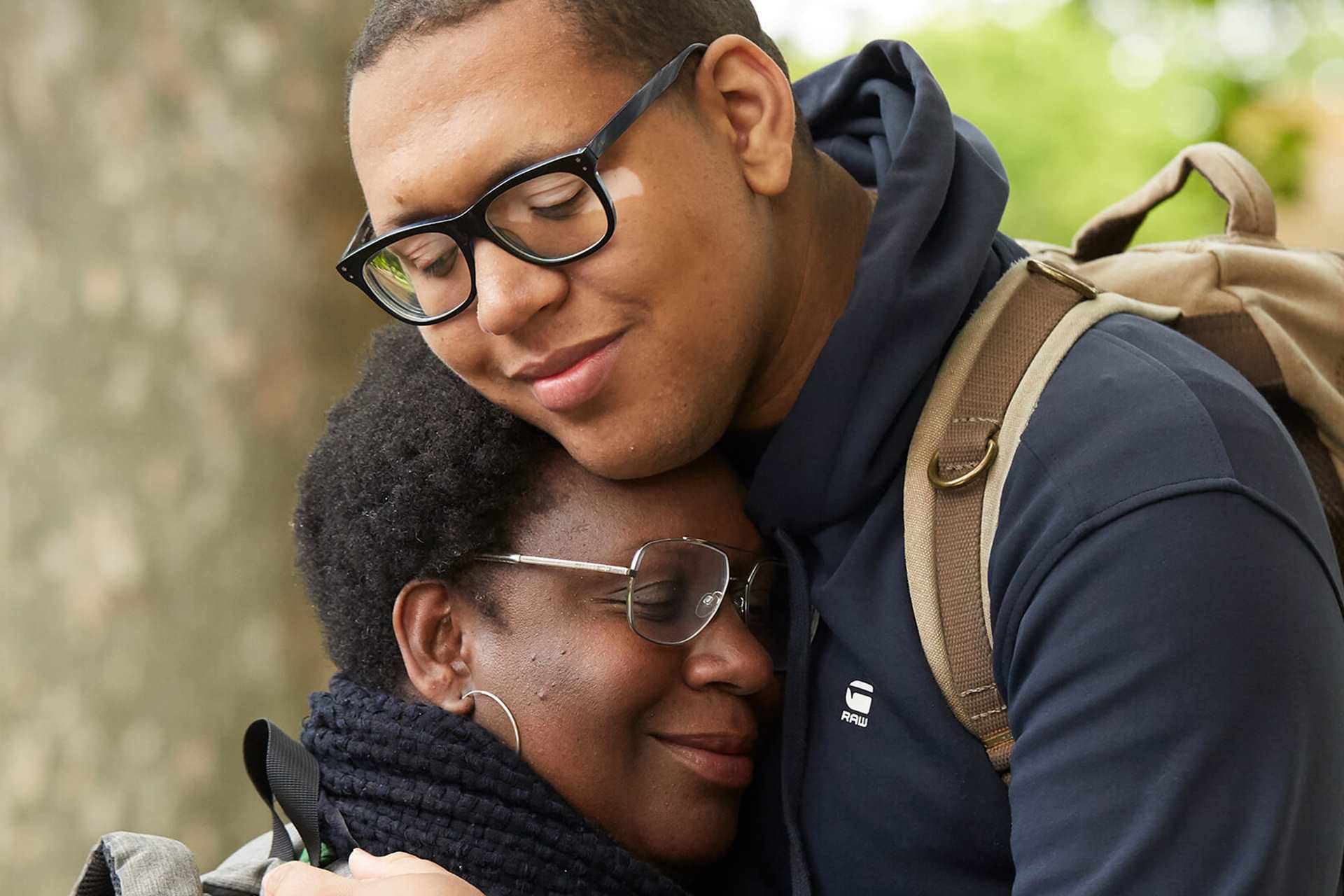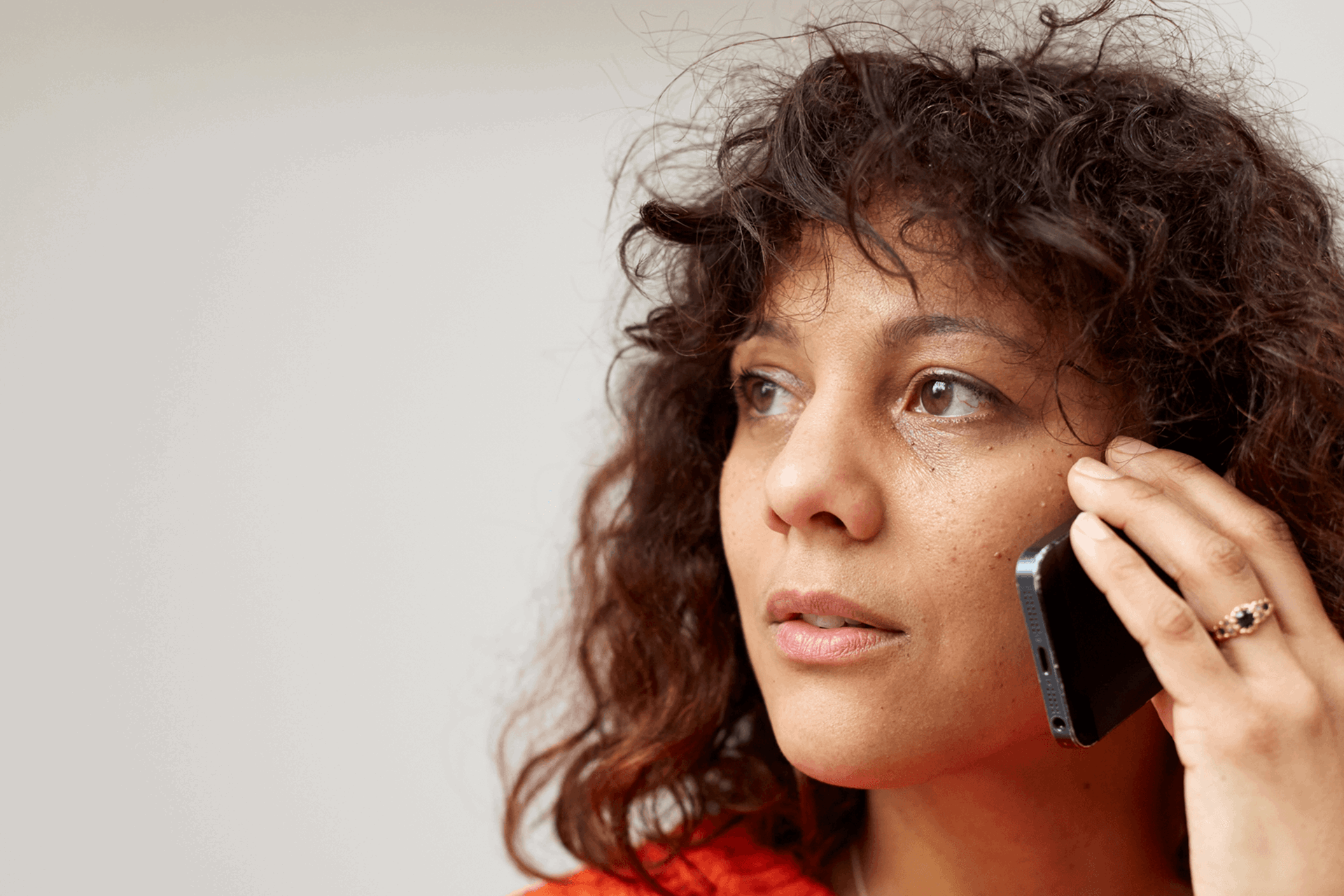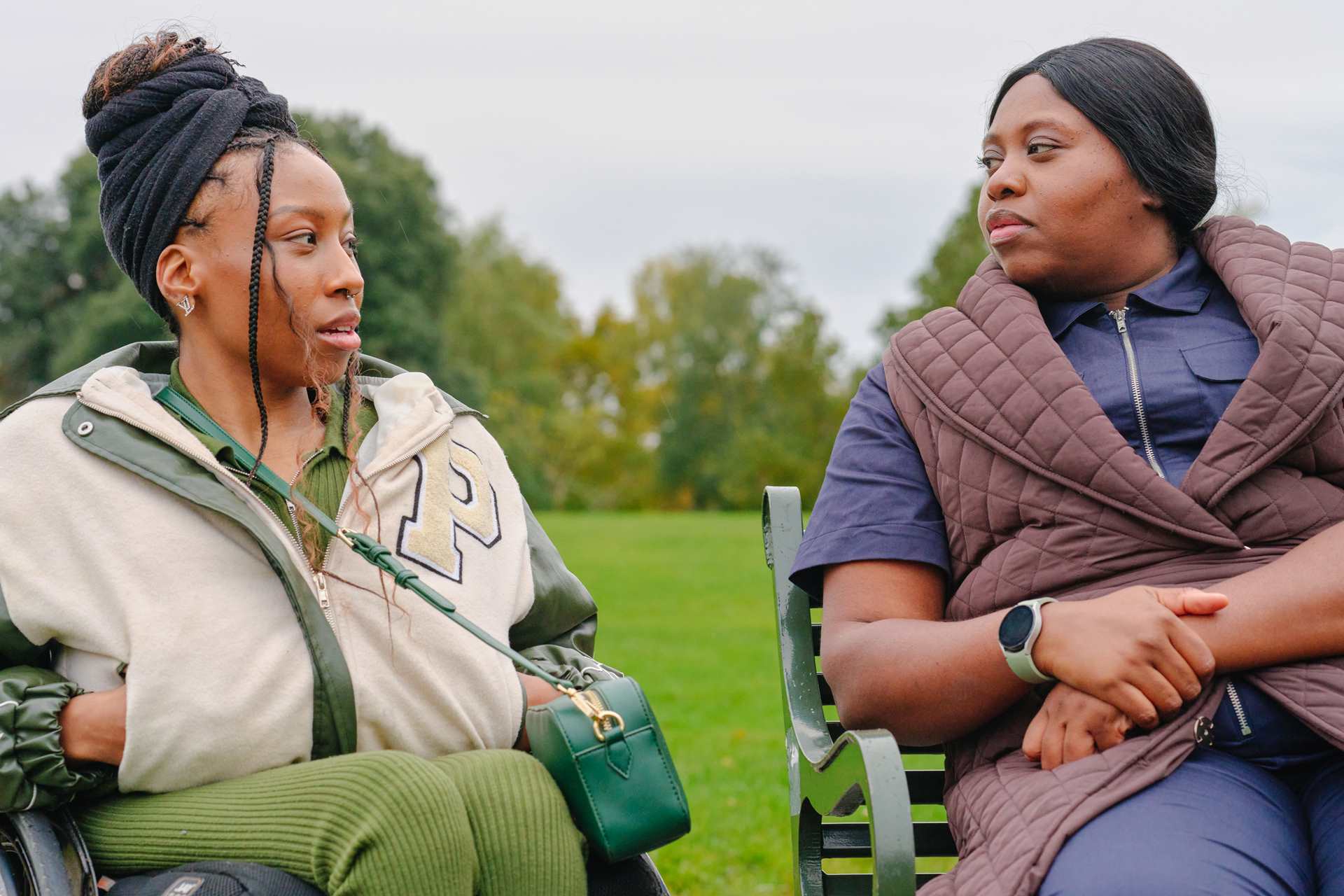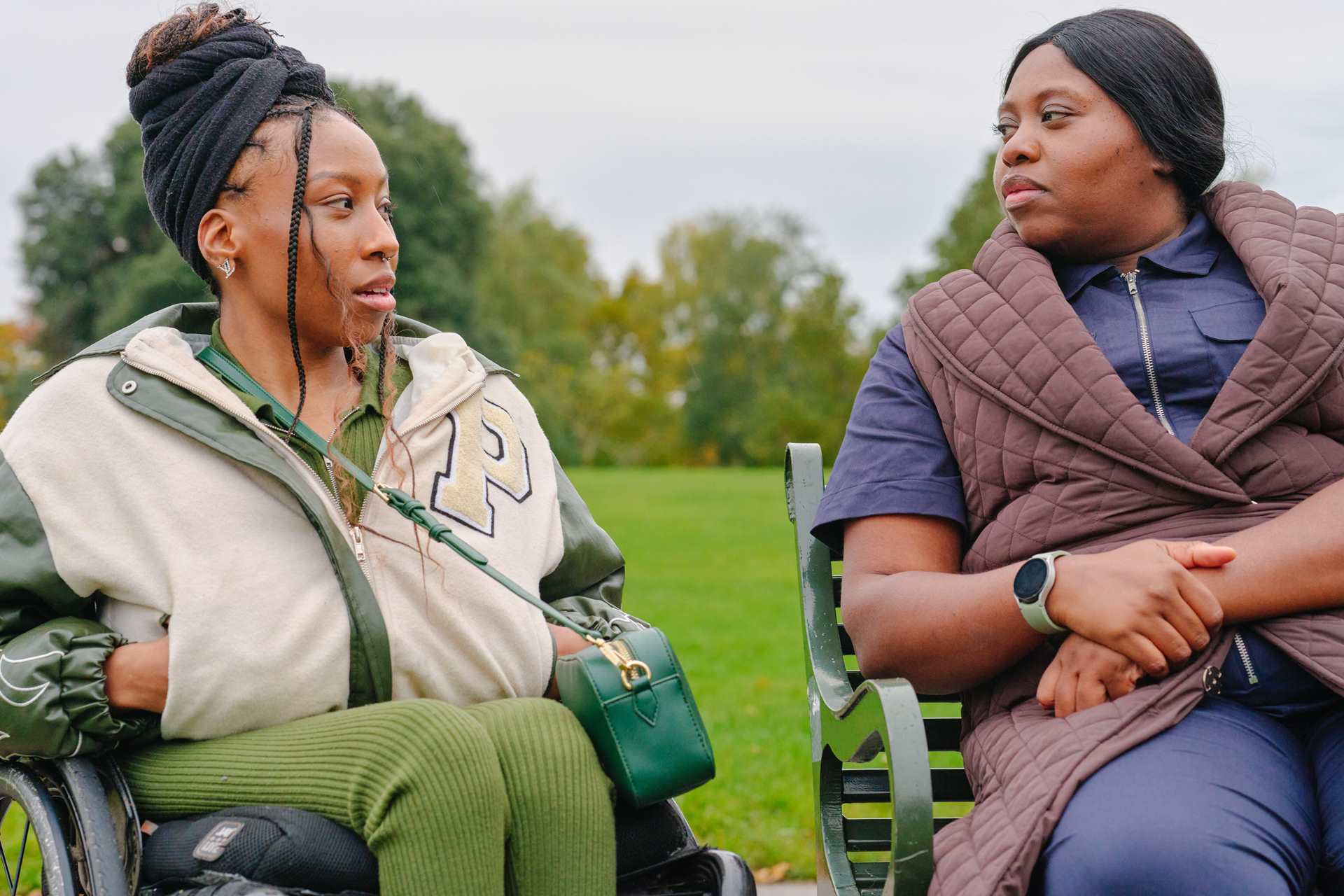Topics mentioned: conflict in Ukraine, how to talk to your child about mental health
About: Our Parents Helpline experts share their tips for talking to your young person about the conflict in Ukraine, and difficult news stories more generally.
Try not to shield your child completely from the news or avoid questions they may have.
Over the last week or two, many of us will have been watching events in the news with a mixture of shock and horror, especially those of us from - or with friends and family from - the affected areas. Even without a direct personal connection to the conflict, it's natural that seeing all the footage coming out of Ukraine, whether on the news or on social media, can be distressing. It's important to recognise this, even if we are committed to paying attention, showing solidarity, or seeking to help the victims.
It can be particularly hard to know how to talk to your child about what’s going on. In this blog, our Parents Helpline experts share tips for talking to your young person about the events in Ukraine.
Tips for younger children
-
Try not to shield them
Try not to shield your child completely from the news or avoid questions they may have, since it is likely they will hear about the war in Ukraine through friends at school, by overhearing conversations or by coming across it online. Give basic, factual information and use resources such as Newsround to support you in having age-appropriate conversations.
-
Explore their feelings
Explore with your child how they are feeling and respond by giving lots of comfort and reassurance. Let them know about the organisations, movements and people who are helping to stop the war. Ask your child what would help them at this time to make them feel less worried or safe.
-
Avoid giving too much detail
Try not to describe what the scenes in Ukraine look like in graphic detail, and avoid showing your child graphic or upsetting images.
-
Stick to your usual routine
Routines can provide children with comfort and stability at a time when they are likely to feel worried or overwhelmed.
-
Be aware of your own feelings
Young children tend to soak up the feelings of adults around them. Be mindful of the types of conversations you have at home, and with others over the phone when talking about the events in Ukraine.
-
Reinforce positive actions
It can be difficult to remain hopeful or positive at the moment, however it is important to reassure your child that lots of organisations and people are working hard to end the war in Ukraine and support people who are being impacted. Plan with your child ways you can help, for example raising money or donating clothes.
Routines can provide children with comfort and stability at a time when they are likely to feel worried or overwhelmed.
For teenagers
-
Talk to them about it
Check in regularly with your teenager and help them to understand what is happening and why. Remind them that it’s okay for them to feel scared, unsure or angry, and try to reassure them. Treat your teenager as an equal – be willing to have the conversation that they want to have.
-
Be prepared for difficult questions
Be aware that they may have strong feelings/opinions and/or may ask difficult questions. Remember, you do not need to know all the answers, but talking things through can help them feel calmer and clearer.
-
Listen carefully to their concerns
Listen carefully to their worries and concerns, and reassure them that it is okay and totally understandable for them to feel however they feel. Provide lots of comfort and reassurance.
-
Try not to shield them from the news
Right now, it’s difficult to get away from the news, but encourage them to reflect on how they’re feeling and think about things they can do, both to help the situation if they want to, and to make themselves feel safer and less worried. Your teenager may need more support at this time, so it’s important to reassure them that you’re there for them and you will get through this together.
-
Talk about what they're seeing
Talk to your teenager about what they are reading online about the conflict in Ukraine – make them aware that there is a lot of fake news and misreporting, and that while it’s important to engage with the reality for people in Ukraine, looking at graphic images could impact them.
-
Consider limiting their exposure
But think about limiting their exposure by only checking the news at certain points during the day or only reading updates from reputable sites. It might help to remember that things are incredibly unsettling at the moment and that the world’s media are focussed almost entirely on this issue. Taking a break from what is going on to focus on other things can help.
-
Help them manage their social feed
Talk to them about who they follow on social media and what news updates they’re getting from these platforms. Social media is a great way to stay in touch with people, but constant news updates on their feed could also become overwhelming. Encourage them to set timers to limit how long they spend on social media or only go on at certain times of the day. It’s important to remind them that they are in control of what they see on their feed and they can mute or unfollow accounts that make them feel more worried at this time. They can also think about accounts that make them feel good.
Encourage them to reflect on how they’re feeling and think about things they can do, both to help the situation if they want to, and to make themselves feel safer and less worried.
More information and advice
Where to get help
-
Anxiety UK
Provides information, support and advice for anyone struggling with anxiety. Please note that this organisation offers paid-for services, including therapy and an advice line.
- Opening times:
- 10.30am-4.30pm, Monday-Friday
-
Family Line
Provides information and support around family issues, as well as longer-term help through Befrienders and Counsellors.
- Opening times:
- 9am - 9pm, Monday - Friday
-
Youth Access
Provides information about local counselling and advice services for young people aged 11-25.
Put in your location and what you need help with into their 'Find help' search, and see what services are available in your area.
Spread the word
